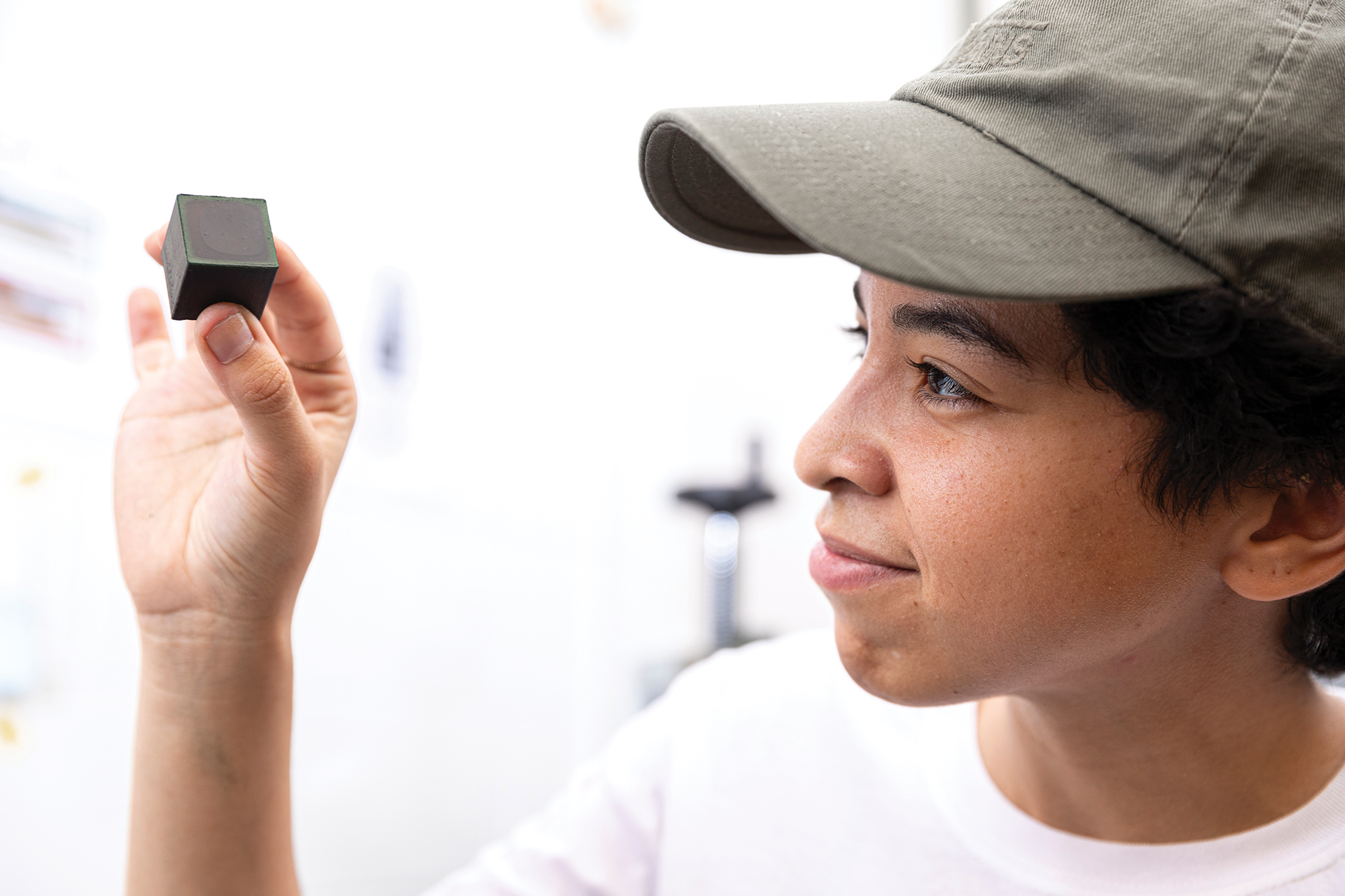

We smile when we remember the great line from the movie “The Graduate,” when Dustin Hoffman’s character is told that the best bet for the future was one word: “plastics.” Well, plastics have completely revolutionized our lives, being durable, inexpensive to make and incredibly stable. But we’ve also become all too aware that disposing of them isn’t easy. They persist in the environment for years. Over time, when they finally do begin to break down, the result isn’t good, either: smaller fragments called microplastics, which can pose significant environmental and health challenges.
But leave it to a team of UW researchers to develop new bioplastics that degrade on the same timeline as a banana peel in a backyard compost bin. These innovative materials are created entirely from powdered blue-green cyanobacteria cells, known as spirulina. The UW team’s bioplastics have mechanical properties that compare to single-use plastics derived from petroleum.
“We were motivated to create bioplastics that are both bio-derived and biodegradable in our backyards, while also being processable, scalable and recyclable,” says Eleftheria Roumeli, assistant professor of materials science and engineering. “The bioplastics we have developed, using only spirulina, not only have a degradation profile similar to organic waste, but also are on average 10 times stronger and stiffer than previously reported spirulina bioplastics. These properties open up new possibilities for the practical application of spirulina-based plastics in various industries, including disposable food packaging or household plastics, such as bottles or trays.”